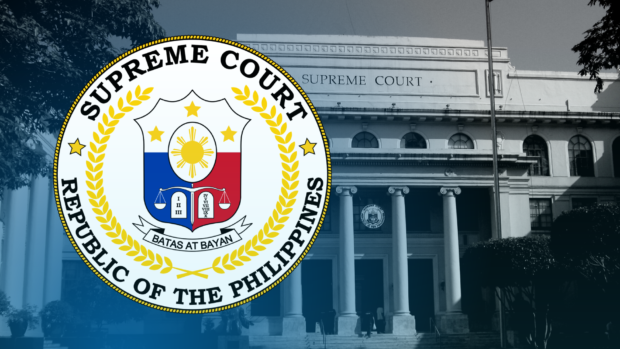SC notes ‘reprehensible’ handling of drug case leading to acquittal of accused
MANILA, Philippines — The Supreme Court chastised the police, the prosecution, and the court for their “reprehensible” handling of a 2003 P1-billion drug case that led to the acquittal of four of the six accused.
Chief Justice Alexander Gesmundo penned the 35-page decision, which was released last June 29.
The decision also acquitted a Filipino and a Chinese — the only two who were originally convicted in the case in 2014 by the Valenzuela Regional Trial Court. The four others — all Chinese — were set free, one of them acquitted and three others had their cases dismissed.
The SC said it had no choice but to exonerate Robert Uy and extend its acquittal to co-accused William Gan for the failure of the prosecution to prove beyond reasonable doubt of their guilt for violating the Anti-Drug Law.
The case stemmed from the 2003 arrest of five Chinese and one Filipino in police operations conducted on Nov. 10 and 11, 2003, in Valenzuela.
Article continues after this advertisementThey were accused of delivering 9,384.7 grams of crystal meth, locally known as shabu, and illegal possession of 119,080 kg. of shabu and 111.200 kg of chloromethamphetamine hydrochloride. According to media reports, the estimate the value of the seized drugs was P1 billion.
Article continues after this advertisementThe Valenzuela RTC convicted Uy, the Filipino accused, of drug trafficking and possession of illegal drugs. The court sentenced him to life imprisonment and ordered him to pay a fine of P10 million.
On the other hand, Gan, who was believed to be the leader of the group, was convicted only for illegal possession. He got a prison sentence of 12 to 14 years imprisonment and ordered to pay a P300,000 fine.
The trial court acquitted Co Ching Ki and dismissed the cases against Jackie Ong, Tan Ty Siao, and Go Siak Ping after granting their demurrer to evidence on the ground of lack of sufficient evidence.
Uy and Gan filed a petition with the Court of Appeals, which affirmed their conviction.
In his petition, Uy said he was only instigated by the police and the four Chinese to drive the vehicle to a warehouse where the supposed drugs were located.
He said the vehicle he was driving was provided by the police while the drugs were placed inside the vehicle by Gan himself.
Irregularities in the chain of custody
The SC reversed the Court of Appeals decision, noting irregularities starting from the arrest of the accused.
The high court said Uy could not have been in actual possession of the drugs because he was already under police custody when the warehouse was searched by the police. It would also be impossible for Uy to have possession of the drugs because the warehouse was under Gan’s name.
The SC also noted that the police failed to follow the chain of custody, a strict requirement under the law.
The first link on the chain of custody was the marking of the seized drugs. Here, the SC said the police officer who marked it was different from the one who actually seized it. No explanation was provided by the police.
The SC said the second link in the chain of custody was also not followed: The police failed to identify the officer who was assigned to investigate the case and prepare documents for developing it.
“There is no testimony or evidence available as to the turnover of the seized items by the apprehending officer to such investigating officer. This is another material gap in the chain of custody which throws into question the identity of the seized items from both operations,” the SC said.
The third link to the chain of custody was the delivery of the investigating officer of the seized drugs to the PNP Crime Laboratory. In this case, the SC said the one who delivered and the one who received the drugs never testified in court.
Finally, the fourth link is the turnover of submission of the seized illegal drugs from the forensic chemist to the court. However, in this case, the SC said the evidence custodians from the Nov. 10 and Nov. 11, 2003, police operations were never presented in court.
The court requires that the chain of custody be followed because it will determine “the identity, integrity, and evidentiary value of the seized items.”
The instant case reveals the law enforcement agents’ complete ignorance of the requirements of Sec. 21 of RA 9165 (Chain of Custody),” the SC said.
Other lapses
The SC noted that, instead of photographs of the seized items, what was presented in court were photographs of the arresting officers securing specimens of the seized drugs.
The SC added that there was not even any attempt to secure the insulating witnesses — representatives from the media, barangay, and the Department of Justice for the Nov. 10 police operation.
“This ignorance extends to the prosecution because the records are woefully bereft of any attempt on its part to even invoke justifiable circumstances to excuse the failure of the law enforcement agents to even attempt to comply with the mandatory requirement of (chain of custody]. The utter disregard for the law demonstrated by these actors is reprehensible,” the SC said.
What is “even more reprehensible,” the SC said, is the error of the lower court in imposing imprisonment of up to 14 years on Gan when it is clear under the law that the penalty should be life imprisonment.
The SC said it is also “bewildered∏ how the regional trial court can acquit the other accused Chinese for failure to prove the bribe money but convict Uy, whose participation could have only risen because of the bribe.
“Truly, the acquittal in the instant case is ordained by the multiple errors, whether through negligence or misfeasance, committed by the prosecution, the defense, and the trial court,” the SC said.
